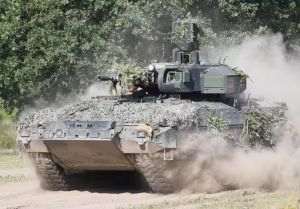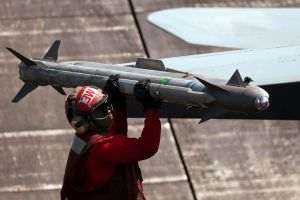It is the domestic natural gas market that has called for the "freeze" of the liberalization schedule in mid-2014, Niculae Havrileţ, the president of the ANRE told us.
For companies, the price of domestic natural gas has been "frozen" at 89.4 lei/MWh (approximately 250 dollars per thousand cubic meters), in June 2014, when the international quotations were indicating a level of approximately 275 dollars/1000 cubic meters. Back then, the ANRE and the Government have decided to halt the schedule of the liberalization of the market for natural gas, because the European quotes had dropped more than had been expected in 2012, when the quarterly pace of the price increases had been approved.
When asked how this convergence level between the price of natural gas produced domestically and the European prices was discovered, Mr. Havrileţ told us: "It wasn't us, the authorities, that set this price, it was the free market. We have tried, in April 2014, to complete the liberalization setting a price of approximately 72 lei/MWh and we have monitored the negotiations between producers and consumers on the free market, which, as you know, has always followed the trend of the regulated market. They didn't agree on this level, and the contracts were getting concluded at 78-84 lei/MWh, depending on the volumes traded and the payment method".
The president of the ANRE says that, in the second quarter of 2014, he has decided to replace, in the applicable legislation, the concept of domestic price alignment to international prices, with the notion of market price, which, at the time, was around 250 dollars / 1000 cubic meters. Following the talks with the IMF and EU representatives, the change was agreed, together with the decision of the Authority to impose the trading of natural gas on an exchange, to allow Romania to have an accurate price benchmark.
Niculae Havrileţ also told us: "Our concept was for the domestic market to discover, in a transparent and non-discriminatory manner, the correct and sustainable price of natural gas and not to follow a schedule of quarterly increases, which had already proved itself to be obsolete. The IMF and the EU support the increased transparency of natural gas transactions and the development of exchange trading".
In 2014, the ANRE decided that producers would be required to trade 20% of the volumes available for the free market in a transparent manner. This year, the percentage has increased to 35% and has become mandatory for suppliers as well. Next year it would gradually begin to drop, until the obligation of transparent trading disappears completely in 2018.
The decision has caused controversies, as the market was divided into two factions: some support making the market completely transparent, similarly to the energy market, and others have backed the Government and the ANRE, which have decided that the exchange trading should only concern the quantities that have remained available (without the ones that are necessary to the population, the Electrothermal Plants, the public institutions, the technological houseload and the honoring of direct long-term bilateral contracts).
Niculae Havrileţ says: "The natural gas market is not similar to that of electricity. Had we imposed complete transparency, then the decision could have been challenged with the Constitutional Court. We have the law on oil, which stipulates that those that have the oil and gas deposits have the right to dispose of their output and to sell it on the free market. On the free energy market things are different. We have the state controlled producers, who have always been forced to sell their energy transparently on the OPCOM. We also have private producers, which are, however, receiving subsidies and thus it is fair for them to be forced to sell energy transparently. I am referring to the producers of green energy, that receive green certificates, and the thermoelectric plants which either receive a bonus for the high efficiency cogeneration, or the support paid for the coal-based generation. All of these subsidies are paid by every consumer, directly or indirectly. Thus, consumers deserve to have a correct price benchmark in the liberalization period market".
He said that this year, the entire volume of natural gas available to the free market, which represents 35% of the consumption (the percentage which is mandatory through the decision of the ANRE), will be traded transparently: "The population accounts for 30% of the consumption, thermoelectric plants account for 10%, and 12% are the technological losses, 5% we have reserved for the export to the Republic of Moldova, and the remainder, of up to 61% of the total consumption, goes to the direct contracts. Thus, we have 39% of the market, of which 35% will be traded on the platforms of the Romanian Commodities Exchange and of the OPCOM. We have left available to operators approximately 4% to cover the unforeseen consumption peaks".
The president of the ANRE considers that the decision to stop the liberalization at the level of 89.4 lei/MWh has proven to be a correct one, given the fact that exchange transactions have closed at a price between 85 and 90 lei/MWh, including in the first quarter of 2015. Prices fluctuate depending on the season, being the highest in winter, and the lowest in summer.
He told us that in December 2014 Russian gas was selling for approximately 400 dollars per thousand cubic meters in the Austrian hub, and this month it has fallen to approximately 370 - 380 dollars per thousand cubic meters, whereas the domestic gas seems to have stabilized around 250 dollars per thousand cubic meters.
Niculae Havrileţ told us that the evolution of international quotations generally follows, in Europe, the trend of oil quotes for a 6-9 months, but that the analysts have noted that the two markets haven't connected since oil has reached the level of 90 dollars per barrel.
The president of the ANRE says that the current trends show that the European price of natural gas is more influenced by demand than by the price of oil, which has collapsed over the last few months. Fortunately, European analysts claim that on the European market for natural gas there is a downward trend as well.





























































